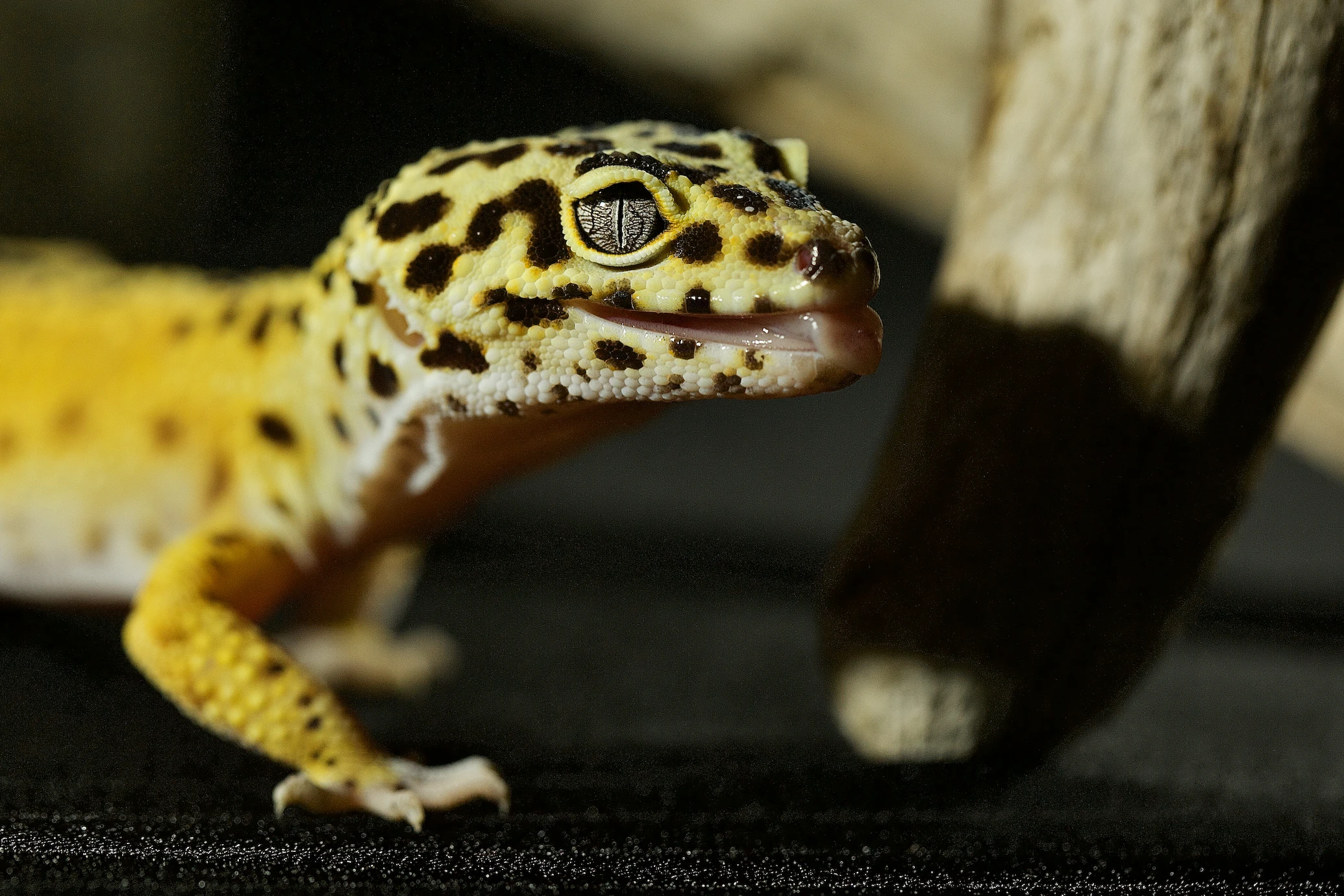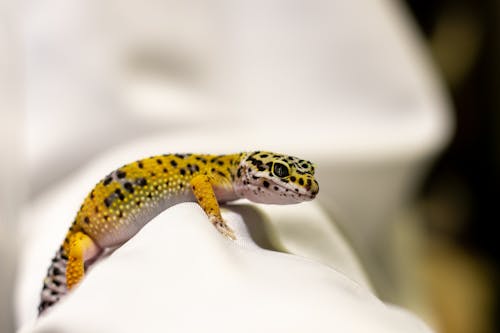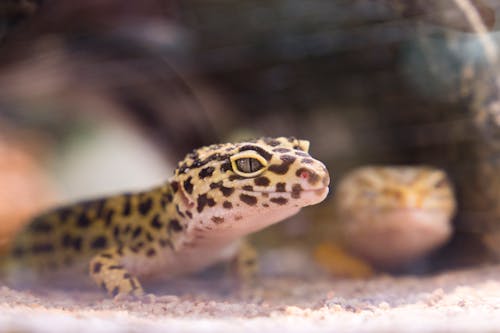
Leopard Geckos, those mesmerizing creatures with their vibrant colors and unique patterns, have long fascinated reptile enthusiasts. But amidst all the excitement of owning one, a crucial question persists: do these exquisite reptiles require UVB lighting? Shedding light on this topic, this article aims to provide you with a comprehensive understanding of whether your Leopard Gecko needs UVB lighting for its optimal health and well-being.

Importance of UVB Lighting for Leopard Geckos
Natural Lighting for Leopard Geckos
Leopard geckos, native to the arid regions of Afghanistan, Pakistan, and India, have specific lighting requirements to ensure their overall health and well-being. In their natural habitat, they are exposed to natural sunlight, which provides them with essential UVB radiation. UVB rays play a crucial role in the synthesis of vitamin D3 in the gecko’s skin, which is necessary for calcium absorption and proper bone development. In order to replicate their natural environment and prevent health complications, providing UVB lighting for leopard geckos is of utmost importance.
Understanding UVB Lighting
UVB lighting refers to the use of specialized bulbs that emit ultraviolet B radiation, which is essential for reptiles. These UVB rays are responsible for the synthesis of vitamin D3 in their skin, which is later converted into an active form by their body. This active form of vitamin D3 helps leopard geckos absorb calcium effectively from their diet. Without UVB lighting, these reptiles may suffer from calcium deficiency, leading to various health issues such as metabolic bone disease and weakened immune system.
UVB Lighting and Vitamin D3 Synthesis
The primary reason why UVB lighting is crucial for leopard geckos is its role in the synthesis of vitamin D3. When exposed to UVB rays, the gecko’s skin produces a precursor form of vitamin D3. Inside their body, this precursor is converted into the active form of vitamin D3, which is essential for calcium metabolism. Calcium is a vital nutrient required for proper bone growth and maintenance. Without an adequate supply of vitamin D3, leopard geckos can develop brittle bones, skeletal deformities, and other serious health complications.
Pros and Cons of UVB Lighting for Leopard Geckos
Advantages of UVB Lighting
The use of UVB lighting for leopard geckos offers a range of advantages. Firstly, it enables them to produce vitamin D3 naturally, leading to efficient calcium absorption and utilization. This helps in preventing the development of metabolic bone disease, which is a common issue in reptiles. Secondly, exposure to UVB lighting promotes the overall well-being of leopard geckos by boosting their immune system and supporting optimal hormonal functioning. Lastly, providing UVB lighting can help replicate their natural environment, promoting natural behaviors and reducing stress in captivity.
Disadvantages of UVB Lighting
While UVB lighting is vital for the health of leopard geckos, there are a few potential disadvantages to consider. Firstly, UVB bulbs can be expensive to purchase initially, and they also require regular replacement to maintain their effectiveness. Additionally, UVB lighting may emit heat, and the temperature levels should be carefully monitored to prevent overheating in the gecko’s habitat. Lastly, some leopard geckos may be more sensitive to UVB radiation than others, and prolonged exposure to high levels of UVB light can potentially lead to eye damage or sunburn.
UVB Lighting Requirements for Leopard Geckos
UVB Intensity and Duration
The UVB requirements for leopard geckos can vary based on factors such as their age, health, and the size of their enclosure. It is recommended to provide UVB lighting with an intensity of 2-5% UVB output. The duration of UVB exposure should be around 10-12 hours per day. It is important to monitor the UVB output regularly with a reptile-specific UV meter to ensure that the intensity remains within the appropriate range.
Choosing the Right UVB Bulb
Selecting the right UVB bulb is crucial to meet the specific needs of leopard geckos. Ideally, a full-spectrum UVB bulb designed specifically for reptiles should be used. Compact fluorescent bulbs or linear fluorescent tubes are popular options, as they provide a broad spectrum of UVB radiation. It is essential to choose a bulb that emits both UVB and UVA rays, as UVA rays contribute to the overall well-being of the gecko by promoting natural behaviors and appetite.
Placement of UVB Lighting
The placement of UVB lighting within the gecko’s enclosure is crucial to ensure optimal exposure. The UVB bulb should be positioned overhead, approximately 10-12 inches away from the basking spot, to provide a wide and uniform coverage area. However, it is essential to monitor the temperature levels, as the heat emitted by the UVB bulb can potentially cause overheating. Additionally, it is recommended to provide shaded areas within the enclosure so that the gecko can regulate its exposure to UVB light and seek shelter if necessary.
Alternatives to UVB Lighting for Leopard Geckos
Dietary Supplements for Vitamin D3
In the absence of UVB lighting, leopard geckos can still obtain vitamin D3 through dietary supplements. Calcium and vitamin D3 supplements specifically formulated for reptiles are available in the market. These supplements can be dusted on the gecko’s food to ensure they receive an adequate amount of vitamin D3 to support calcium absorption. However, it is important to note that relying solely on dietary supplements may not provide the same benefits as natural UVB exposure.
Artificial UV Lighting Options
If providing UVB lighting is not feasible or suitable for your leopard gecko’s enclosure, there are alternative artificial UV lighting options available. These include specialized LED lights that emit a specific wavelength of UVB radiation. However, it is crucial to carefully research and choose a reputable brand that provides UVB lighting specifically designed for reptiles. It is recommended to consult with a reptile veterinarian or an experienced reptile keeper to determine the best alternative option for your leopard gecko.

Common Misconceptions about UVB Lighting for Leopard Geckos
Misconception 1: Leopard Geckos do not Require UVB Lighting
One common misconception is that leopard geckos do not require UVB lighting. While leopard geckos are nocturnal and do not require UVB lighting for vitamin D3 synthesis as much as diurnal reptiles, they still benefit greatly from low-intensity UVB exposure. UVB lighting helps stimulate natural behaviors and supports their overall health and well-being.
Misconception 2: Overexposure to UVB Light is Harmful for Leopard Geckos
Another misconception is that leopard geckos can be harmed by overexposure to UVB light. While prolonged exposure to intense UVB radiation can lead to potential eye damage or sunburn, providing UVB lighting within the recommended intensity and duration poses no significant harm to leopard geckos. It is essential to follow the guidelines and monitor the UVB output to ensure the gecko’s safety.
Signs of UVB Lighting Deficiency in Leopard Geckos
Dull or Faded Coloration
One of the common signs of UVB lighting deficiency in leopard geckos is a dull or faded coloration. In the absence of adequate UVB exposure, the gecko’s skin may become less vibrant and lose its natural brightness.
Soft or Brittle Bones
A deficiency in UVB lighting can lead to improper calcium absorption and metabolism, resulting in soft or brittle bones. This can be observed through weak limbs, difficulty climbing, or a hunched posture.
Stunted Growth
Another indication of UVB lighting deficiency is stunted growth. Without sufficient UVB exposure, the gecko’s ability to absorb and utilize calcium is compromised, leading to slowed growth and development.
Reduced Appetite
Leopard geckos lacking proper UVB lighting may also exhibit a reduced appetite. Calcium deficiency caused by inadequate UVB exposure can impact the gecko’s overall metabolism and appetite.

Conclusion
UVB lighting plays a critical role in the health and well-being of leopard geckos. By providing the necessary UVB radiation, leopard geckos are able to synthesize vitamin D3, which is essential for proper calcium absorption and bone development. While there are pros and cons to consider when using UVB lighting, it remains the most effective way to meet the gecko’s UVB requirements. However, alternatives such as dietary supplements and artificial UV lighting options can be considered under certain circumstances. It is important to dispel common misconceptions, monitor for signs of UVB lighting deficiency, and ensure that proper UVB lighting requirements are met to ensure the optimal health and longevity of leopard geckos in captivity.